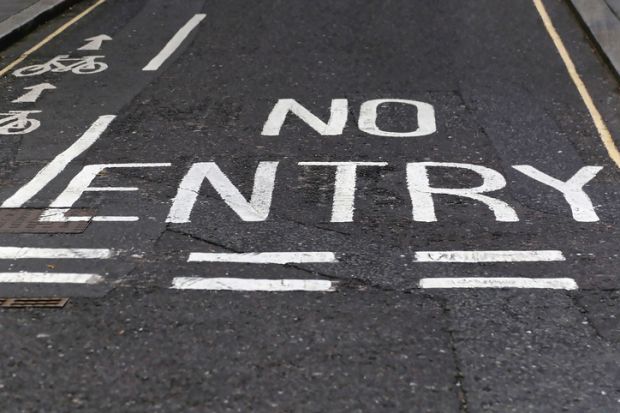“The only way to get rid of temptation is to yield to it,” wrote Oscar Wilde in 1890. Little did he know that his sentiment would now form the centrepiece of a highly-charged debate over the increasingly liberal use of unconditional offers by universities to tempt prospective students. Statistics on the scale of the problem are now easy to come by, but solutions remain largely illusive.
The most popular justifications bandied around by some universities for using unconditional offers include their proclaimed desire to reduce students’ stress, only using the offers to identify exceptional students and, of course, claiming to gauge students’ potential by assessing a wide range of information.
While these defences may on occasion have merit, they are woefully inadequate for explaining why universities made 117,000 unconditional offers last year compared with 3,000 five years ago.
Earlier this month, education secretary Damian Hinds aired his frustration yet again at the extent and impact of unconditional offers and called for at least some types of unconditional offers to be banned. However, universities have legal autonomy over their admissions. This presents policymakers with a dilemma: how do you make universities behave more scrupulously without taking away their autonomy?
The first step is to ask a deceptively simple question: what is a grade-based university offer supposed to represent? As the Ucas website helpfully reminds us, the reason that universities set entry requirements – the most important element being the entry qualifications and grades that students must achieve – is that they wish “to ensure you have the right skills and knowledge to successfully complete the course.”
This is perfectly sensible. After all, students starting a course for which they are academically ill-equipped is in no one’s interest. So, for example, a university would publish its course requirements on the Ucas website – say, three Bs at A level – and then students would apply using their predicted grades. Nothing to be alarmed about so far.
Fast forward to A level results day and things start to get murky. Many students meet their chosen university’s entry requirements; others do not. If a university has decided that a student must have achieved three Bs to deal with the demands of a particular course, on what basis would it then accept a student who fails to meet this benchmark? Indeed, if entry requirements are designed to reflect the academic standards of a course, why should one applicant ever receive a lower offer than someone else?
Furthermore, if the entry requirements reflect the demands of a course, there should be no differentiation between a student who missed out by one grade and a student who missed the requirement by three or four grades – they should both be rejected.
Unconditional offers circumvent this awkward conversation altogether by admitting students regardless of their academic ability, yet this undermines the notion that universities have a responsibility to ensure that students can handle the rigour and expectations of their chosen degree.
As has become clear, there are no consequences for a university that takes advantage of its autonomy over admissions for the wrong reasons. Universities collect tuition fees from anyone they admit, so the incentive to recruit more students – however unsuitable – is potent. Meanwhile, league tables are based on universities’ official entry requirements stated on the Ucas website, not on the actual grades achieved by the students accepted onto each course.
Regrettably, some universities have distorted the concept of entry requirements for their own commercial gain. Despite what it says on the Ucas website, the reality is that universities use the offers they make to attract students to their institution instead of using entry requirements to signify academic standards. Unconditional offers are merely the most extreme manifestation of this behaviour.
The solution to unconditional offers therefore rests on introducing some level of consequences for universities that prioritise commercial interests over students’ interests. Universities should retain their autonomy to set whatever grades and qualifications they require for each course, and these should continue to be published on the UCAS website. Let’s call these entry requirements the “minimum acceptable standard” (MAS).
In future, any applicant who is admitted onto a course after failing to meet the MAS would not be entitled to a student loan for tuition fees or maintenance. Universities are more than welcome to provide funding for any applicants that do not achieve the MAS, but they should not be financially rewarded by taxpayers for accepting someone that the university has themselves declared to be ill-equipped for a particular degree. Universities could still set entry requirements above the MAS for any given applicant, but they cannot drop below it.
This new approach would ensure that universities are honest with students, teachers and parents (as well as the publishers of league tables) about the standards that must be reached before a student starts each degree. In doing so, it would also bring an end to unconditional offers.
In short, ministers and the Office for Students should force universities to stand by their own published entry requirements. This preserves university autonomy because they can still set whatever requirements they wish, but it prevents institutions from exploiting the system by chasing after students who are not suitable for their courses. I’m sure universities will not want their admissions practices curtailed, but when the damage to students’ interests is so plainly apparent then ministers and the OfS have every right to intervene.
Tom Richmond is director at the thinktank EDSK.
